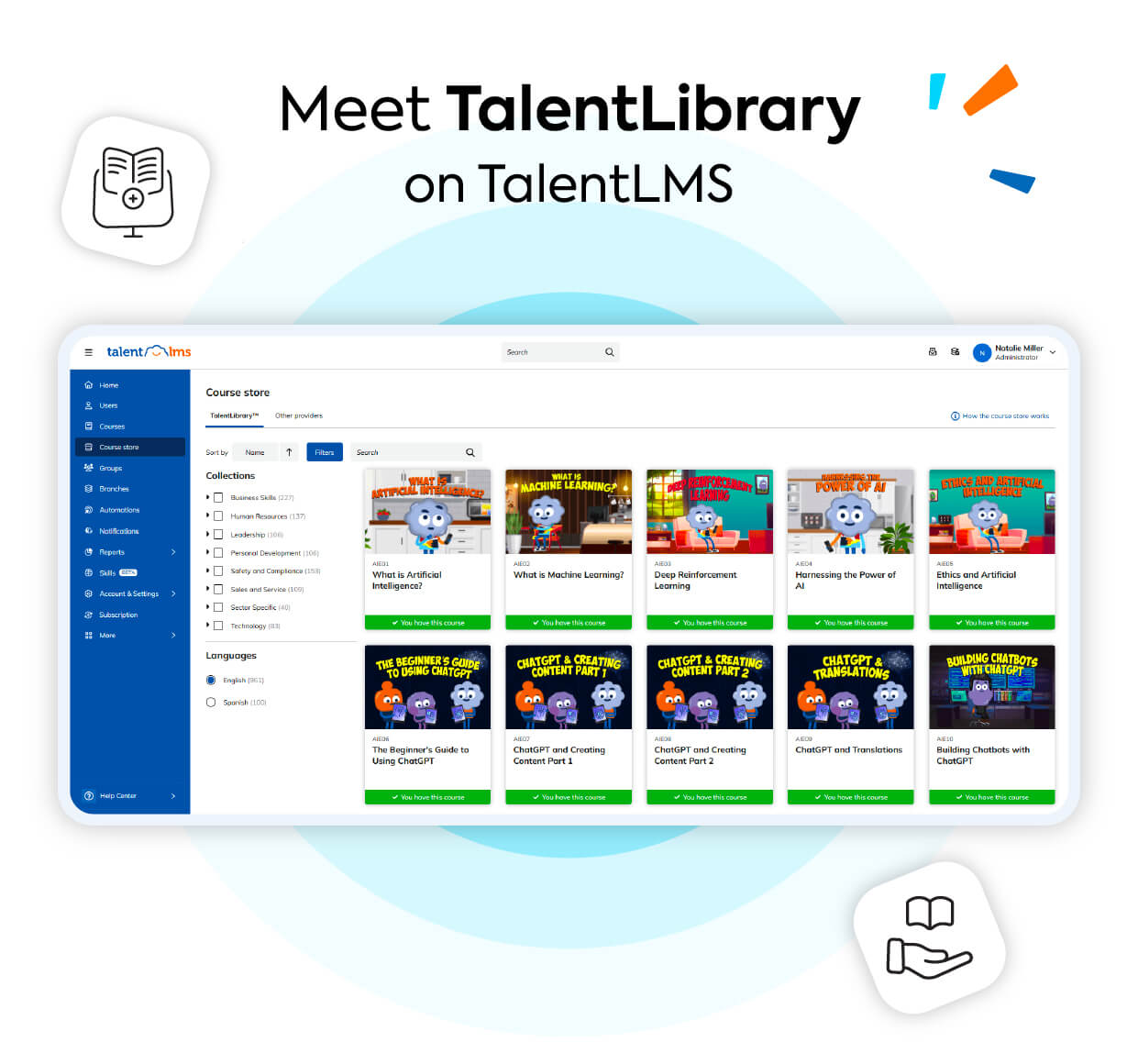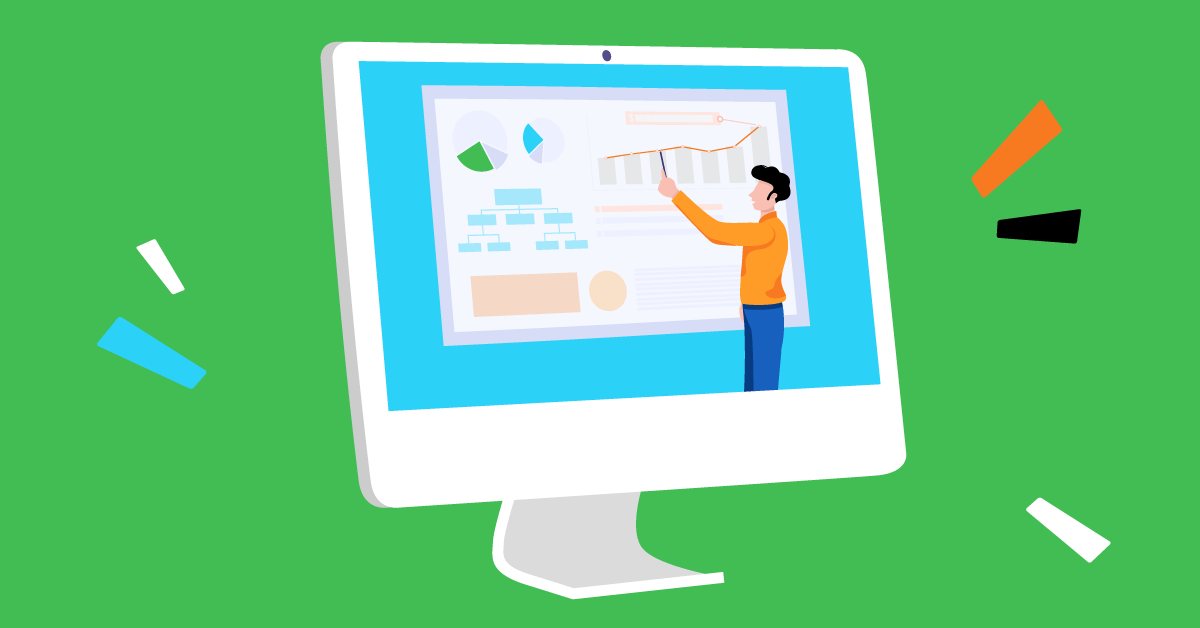Product knowledge training has the power to boost your team’s performance and your company’s revenue. Are you underutilizing this powerful tool in your organizations?
Many companies offer sales product training during onboarding. It makes sense to give them the information they need to get up and selling quickly.
But it can be difficult for people to absorb all the information in such a short time—especially when they’re still new to the product. To keep your sales reps at the top of their game, you need to update their product knowledge regularly.
In this article, we’ll talk about maximizing sales performance through product training. We’ll provide a list of questions your sales reps should be able to answer and show you how to use those questions in creating a successful product knowledge program for sales.
Why product knowledge training matters
Product knowledge training prepares your team to offer an exceptional customer experience and it should be a part of your regular training strategy.
Many businesses understand that training their sales teams improves revenue and already have a training strategy in place. But those strategies tend to focus on bringing new employees up to speed and addressing performance review concerns. As such, they center on essential sales skills like:
- Sales techniques
- Communication
- Negotiation
- Closing techniques
Product knowledge is often overlooked.
If you’re worried about overwhelming your team with training by adding this topic, consider the value it brings. Product sales training can increase your revenue by:
- Building trust with customers: When salespeople can speak to all your product’s benefits, how it compares in the market, and how it can make customers’ lives better, they stand out as experts in the industry. When they can answer difficult questions quickly and with authority, customer satisfaction increases and people more frequently turn to your company for solutions.
- Boosting reps’ abilities: A thorough understanding of the product will boost your sales reps’ confidence in talking about your product. They’ll also know how to recognize and address customer pain points. Giving your team experience with the product and its benefits turns them into stronger advocates for it.
- Increasing sales: When salespeople feel strongly about a product, they’re better at selling it. When they know how to overcome common objectives, they’ll move more prospects through the sales funnel to conversion. And when customers have a relationship of trust with your reps, they’ll be more likely to buy. Investing in product knowledge training can directly affect sales success. The key is to make sure you know what information to include and how to effectively get that information across to your team.

30 product knowledge training questions your sales reps should be able to answer
Sales reps must know different aspects of your product/service to sell it effectively. Here are 30 questions across key categories you can use to build your team’s product knowledge.
Ideal customer profile
Sales reps need to know who they’re selling to so they can tailor their message. Understanding who the product is meant to serve will help them understand the product even better.
- Who are our target customers? (company size, industry, etc.)
- Why are they looking for our solution?
- What is their typical budget/price point?
Brand and mission
Customers want to know that you have a solid track record as a supplier in your market. In addition, today’s consumers are increasingly concerned with a brand’s values. Employees should be able to show how your brand shows up in the market and connect your product with your company’s mission and beliefs.
- Who are some of our top customers that prospects would recognize and respect?
- What values does our company promote?
- How does the product support these values?
Price/ROI
Sales reps need to know the cost of your product, including different pricing tiers. They should be able to justify the cost within the market and articulate the ROI customers will see when they use your product or service.
- What different pricing plans do we offer?
- What does an initial client investment look like?
- How do you calculate the final price for the customer?
- How does our pricing compare with competitors (and why the difference)?
- What’s the best plan/pricing model for a large enterprise company, a small startup, etc.?
- What are the improvement statistics for customers who use the product?
The customer journey
Your sales team should be able to guide customers through the sale process and ensure they also get after-purchase support.
- Who should customers turn to if they have trouble with the product?
- What’s the best way to connect with a customer service agent (e.g., phone, email, live chat)?
- Does the customer receive full customer support with their purchase (possibly managed through call center software)?
Industry norms and competition
What makes your product or service unique in the industry? Save customers the trouble of doing a competitor analysis for themselves by preparing your team through product knowledge training to answer the following:
- How does this solution compare to [top competitor]?
- What sets our product apart in our industry?
- What are industry standards around our product or service (i.e., What should clients expect at a basic level)?
- What’s trending in the industry?
Product features and functions
Those selling your product or service should know better than anyone what the product does, its various features, and what it looks like in action.
They also need to know technical details so they can advise customers on how the product will best serve them.
- How does the product make the customer’s life or work easier?
- How do they install it?
- What’s the best way to implement your solution in an enterprise vs. a startup vs. a small business?
Future of the product
Your salespeople need to know what’s coming so they can offer your best service and build successful long-term customer relationships.
The following info will also help them promise solutions to customers who aren’t ready to buy the current product but may be happy to wait for improvements or new features or services that will be available soon.
- What does the product roadmap look like in the next [year, quarter, etc.]?
- What updates are coming to customer support in the near future?
Customizations
Sales reps need to know how your solution can be tailored to specific client needs. This will help them solve customer pain points and present a case for ROI more clearly.
- Can buyers customize features/the source code?
- When should a customer use the source code/customize features?
Common questions/objections
Prepare your reps to offer a superior customer experience by bringing them up to speed on common questions and objections through product knowledge training.
- What are the FAQs different types of clients ask?
- What are the answers to those questions?
- What objections are typical from different industries, company sizes, etc.?
- How do you respond to those objections?
Tips and a template for an effective product knowledge training
Make the most of these questions by integrating them into your strategy for building successful salespeople in your organization.
Download this printable template of the questions for easy access. Then look for ways to make sharing and testing this knowledge a regular part of the employee experience.
Get your free templateWhether you’re building formal sales training, implementing sales coaching, or looking to support sales teams on a daily basis, here are some tips for putting these questions to use:
- Build role-playing scenarios to make sure everyone on the team understands how to answer them.
- Build a Q&A repository inside your sales training portal in your Learning Management System (LMS) so reps can quickly track answers, even when they’re on a call with a customer.
- Create product knowledge assessments to test how well people can answer the questions before training (to assess skills gaps).
- Use them as a follow-up strategy with post-training quizzes to reinforce learning.
- Use them in the hiring process as interview questions to test candidates’ skills and ability to answer on the spot.
- Go over common objections and how to respond to them in deal coaching sessions.

Turn your sales reps into product experts
If you want to provide the best buying experience possible, give your sales teams the tools they need to inform, apply, and support customers throughout the buying process.
Stepping up your sales product knowledge training is an investment in your sales reps—and that investment will pay off in a more dedicated sales team and higher revenue.
Originally published on: 13 Apr 2023 | Tags: Customer Support,Employee Training,learning and development,Sales Training





